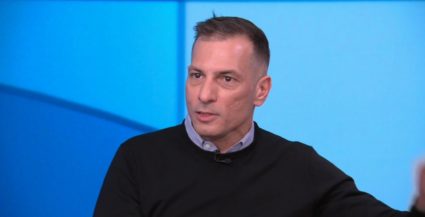Christopher Rufo’s Influence on Higher Education and Free Speech Debates
Christopher Rufo has quickly become a central figure in the ongoing debate about higher education and free speech in America. His activism and policy efforts have sparked conversations nationwide, influencing both political leaders and campus communities. But what exactly is driving this movement, and how is Rufo persuading lawmakers and the public alike?

Who Is Christopher Rufo?
Christopher Rufo is well known as a conservative activist, writer, and policy advocate. He is recognized for his campaigns against what he sees as "wokeism" and his calls for transparency in university governance. Rufo believes that academic institutions should foster genuine inquiry rather than political indoctrination. His recent efforts target reforms in higher education to promote free speech and intellectual diversity.
Rufo’s Push for Academic Reform
Rufo’s influence has expanded as he collaborates with policymakers to scrutinize university administrations. He argues that some campuses have drifted away from open debate in favor of ideological conformity. This viewpoint has shaped legislative proposals aiming to ensure greater accountability at public universities.
For example, in an in-depth interview on PBS NewsHour, Rufo explains his goals: to promote academic freedom, end "woke" practices, and address issues like antisemitism. He maintains that open discussion should be the foundation of higher learning.
Recent Policy Efforts and Public Response
Rufo’s activism has influenced the national agenda, especially regarding government oversight of education. His approach has resonated with some lawmakers and parents, who support efforts to review and sometimes restrict certain academic programs. However, these reforms have faced resistance from many educational leaders, who argue that such measures threaten academic independence.
Media outlets have covered the ripple effects of Rufo’s work. Connecticut Public highlights the national dialogue generated by his initiatives, noting both support and criticism from different sectors of society.
The Broader Context and Continuing Debate
Rufo’s advocacy fits into a broader national conversation about how history and contemporary issues should be taught at universities. These debates affect campus policies, hiring practices, and curriculum standards. Questions about the role of public funding and academic transparency are now at the forefront.
A segment from WVIA’s coverage further illustrates how Rufo’s campaigns have sparked responses from university leaders and student groups alike. The tension between free expression and institutional values is set to remain a key theme as these debates progress.
Conclusion: The Lasting Impact of Christopher Rufo
Christopher Rufo has profoundly shaped the discussion surrounding higher education and free speech in the United States. Whether one views his efforts as necessary reform or political overreach, his influence cannot be ignored. As more institutions and lawmakers engage with these issues, the future of academic freedom and governance in America will continue to evolve. For those interested in following the latest developments, monitoring reputable news sources remains essential.